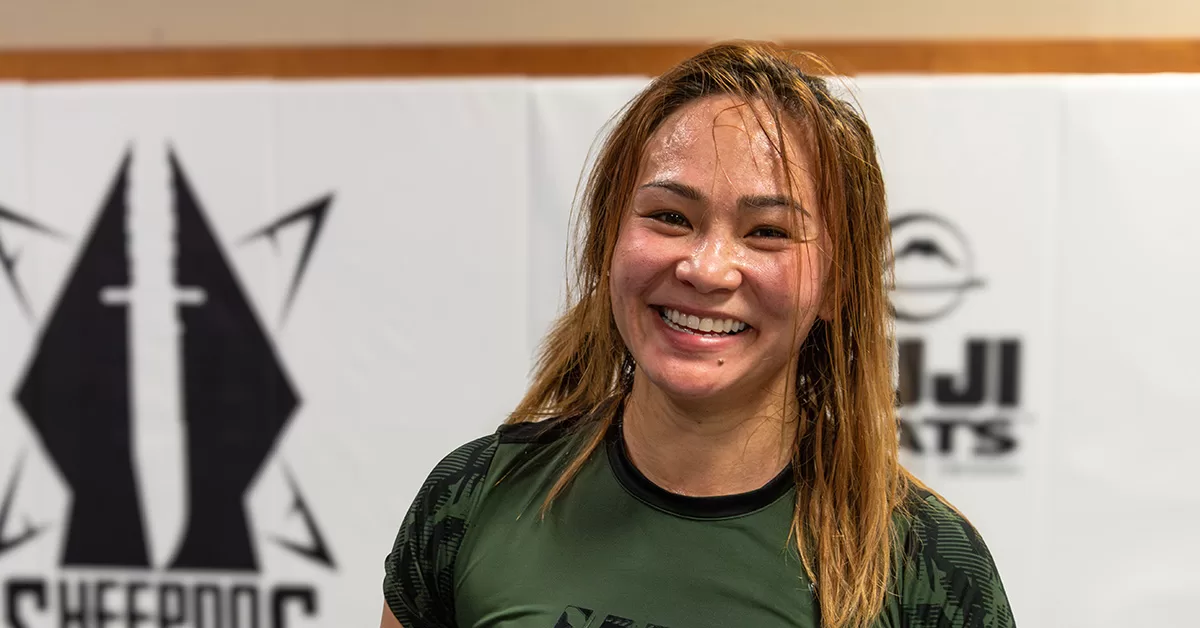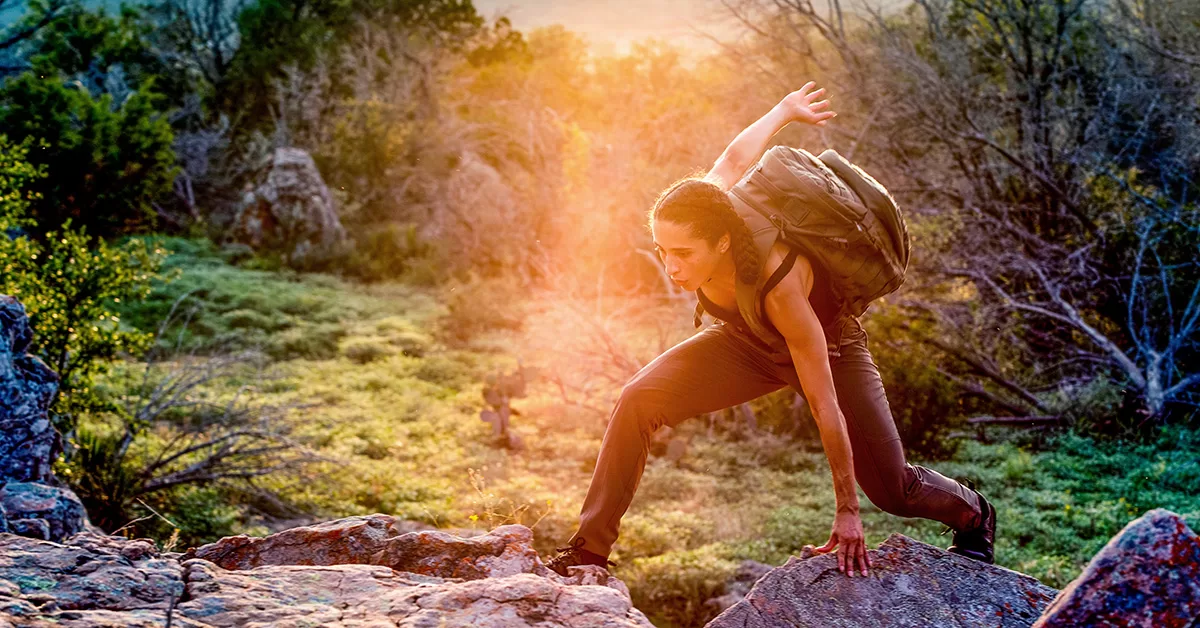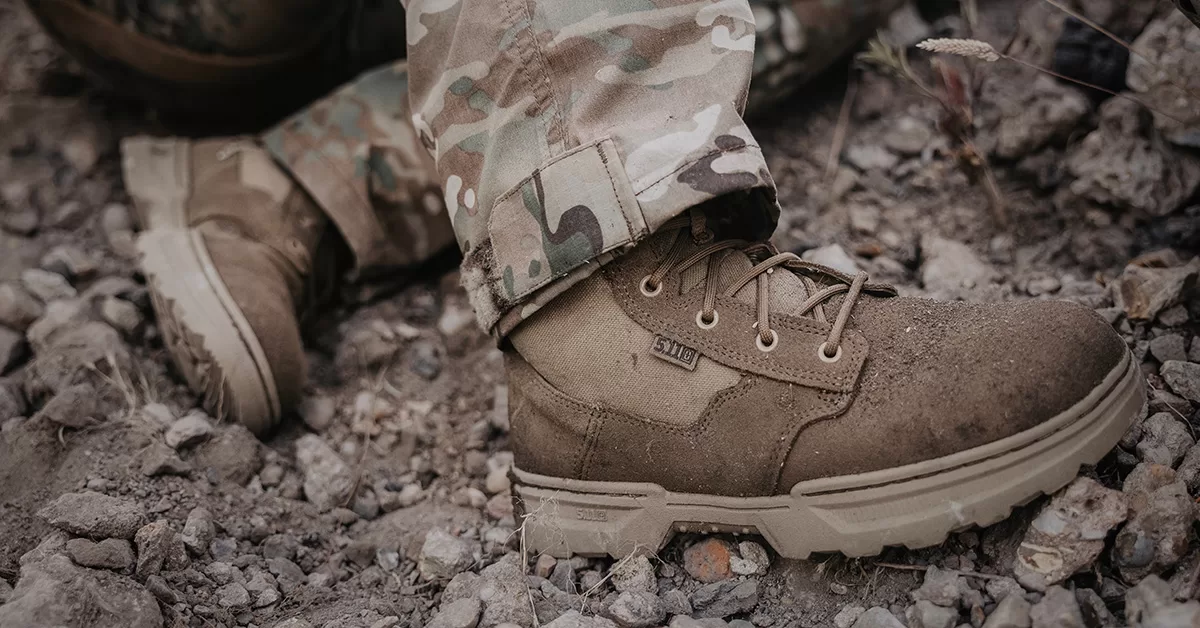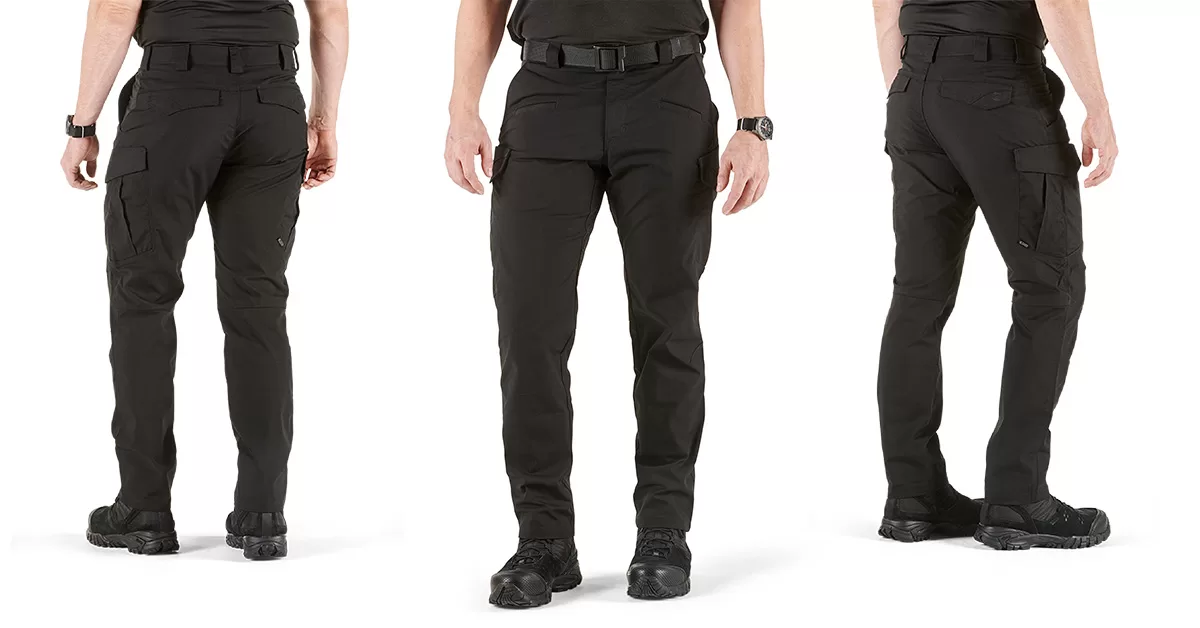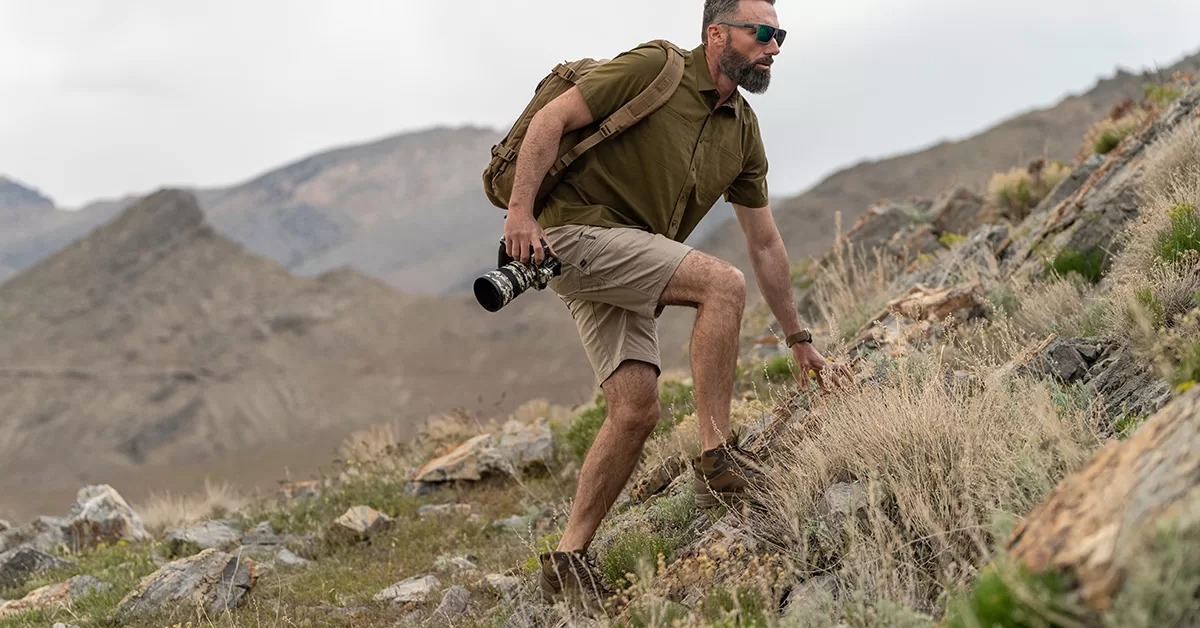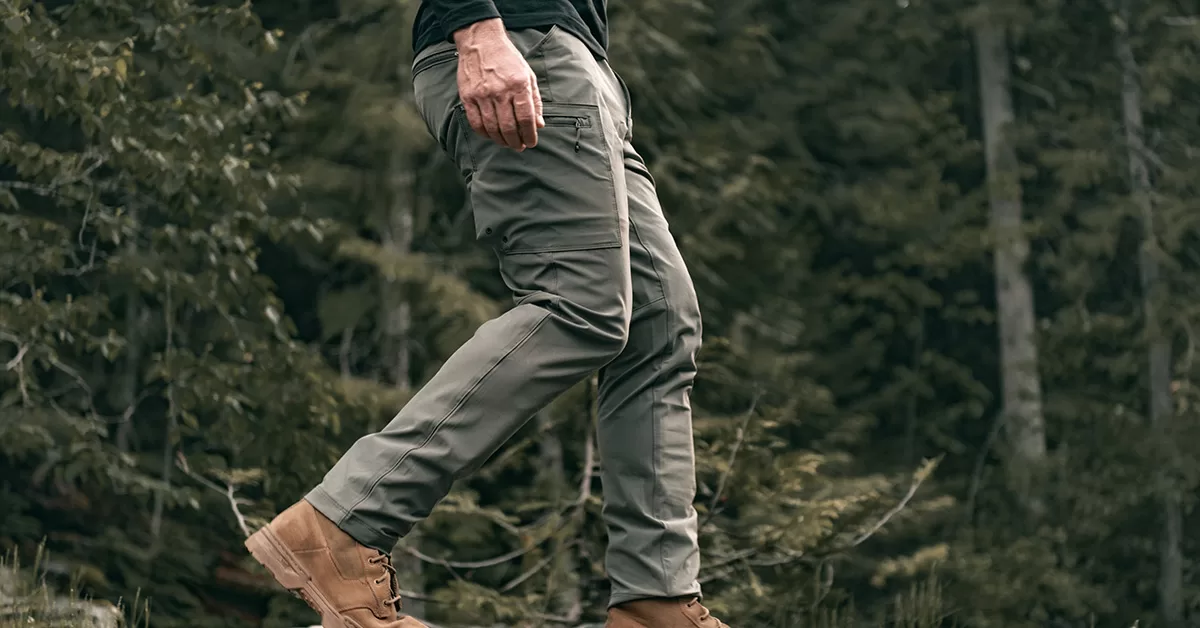Protector by Trade: Q&A With Byron Rodgers
Few professions have the same physical and mental demands that go with executive protection. When a client’s life is on the line, there is no margin of error—there are no second chances. For years, the trained few who provided this exceptional service did so in the dark—until Byron Rodgers came along.
A former Marine turned executive protection agent with extensive experience on protection details spanning the globe, Byron Rodgers is dedicated to teaching others and building communities within the profession. We sat down with him to learn more about the executive protection lifestyle and how he trains to stay fit and stay dangerous.
Q: Tell us about yourself: who you are, your background, and your organization: Bravo Research Group.
“I am a protector, a provider, and an empowerer on many levels to many different people and social circles. I was born in the Bahamas, raised in Washington state. As a young man I bounced back-and-forth between the two places. Joined the Marine Corps infantry out of high school in ‘04, went on to do two deployments to Iraq as an 0351 (Infantry Assault).
After I exited the Marine Corps, I got recruited onto one of the biggest and most highly traveled details in California at age 21. It was like learning to drink out of a firehose. We hit 60+ countries my first year in the game. We traveled more than the President of the United States, and I lived that life for a total of seven years straight before branching out to other details on both coasts and building my books in Southern Florida and all over California. After chasing the pager for a few years, I built my career up enough to start my own shop and now I run my own boutique private security operation Here in SoCal, Bravo Research Group.
Since then, I’ve launched a number of different brands and companies all around the mission of making the world a safer place by helping good people to become more dangerous. My mission is to increase the amount of on-scene accountability in the world for evil people because first responders won’t always be able to be there. If we can empower the population to understand how to protect itself, we will all be safer.
Through the League of Executive Protection Specialists, I train and empower executive protection and private security operatives not only to do better work but also how to have the careers they’ve always wanted. The Training Day Success Package is where I brought my executive protection school to the masses and it has been a great way for me to help others achieve their career goals.
I have a master’s in Counseling of Psychology with a minor in Forensic Psychology. I’ve also authored a book called the Finding Meaning After the Military designed to help veterans with the transition from time and service overseas to the first civilian division. It’s an amazing book about transition and more specifically the tools I used to save my own life and to get myself into a position of power to engage in new battles out here in the world.”
Q: Tell us about your podcast Executive Protection Lifestyle. What topics do you cover?
“On the podcast, we cover any and everything that has to do with the job. It is simply the largest free library of real-world information about executive protection. I’m very proud of that because when I came into the game, everyone was so hush-hush which I understand but I am very glad and honored to have broken the silence because I believe the industry really needed and still does need things to unite us and give us communities where we can all learn and grow together.
In my opinion the executive protection lifestyle podcast is simply the best place to get a realistic understanding of what it takes to be successful in this game. You won’t just find one instructor there, you’ll find an ocean of high-quality successful individuals who are sharing their experiences with you. Who can put a price on the value of experience? Success leaves clues unless you’re clueless, the information there is priceless both to people who are in the industry currently and to those who are just interested or who might want to become an agent one day.”
Q: What drove you to Executive Protection? What was the transition like coming from the Marines?
“To be honest what drove me to this game was truly my relationship with God. I was exiting the Marine Corps and I was at a loss for what to do with my life next. I knew I could try to be a police officer or go be a paramilitary contractor overseas because the only formal training I had ever had came from the Marine Corps infantry. I said a prayer and the Holy Spirit told me to go get a job at a local pub and that I would travel the world as a bodyguard. I followed those instructions and within three months met a detail leader who plugged me in to one of the biggest and most highly traveled details in the United States at age 21. When people say that they didn’t choose the game, but the game chose them, I feel that statement is actually true for me. Executive protection is the only adult job I’ve ever had other than fighting in the Iraq war.
As far as the transition, I teach about it and my course and talk about it quite a bit on the podcast because it is a friction point I find a lot of guys coming out of the military struggle with. The transition from warlord to guardian is a big leap and it requires deliberation.
At first, I hated this job because I felt like a babysitter or someone’s highly paid watchdog. Sure, I enjoyed all the amenities, but I hated feeling like “the help” having come from a lifestyle of maximum adrenaline, fighting for your life, rough circumstances with respectable and rough men at your side. Going into the types of situations you find yourself in in the EP game was culture shock for me as it so often is for many of the veterans entering the industry. It was like going from being in the novel Lord of the Flies meets Platoon and waking up in the movie The Hunger Games.
I’ve seen many struggle with this, but to put it briefly, the key to successfully integrating within this industry is to change your mind. I don’t do my job and protect people because of how they treat me. I protect people because it’s who I am and what I’m about—it has everything to do with the pride I have in myself and my work product. I see myself more like a knight or an armor bearer, there’s honor to this work, and the vocation of protection has been an honorable profession since the beginning of mankind that you can trace in every written history of the world.”

Q: What has been one of your most memorable experiences as a Marine and/or executive protection agent?
“The most memorable experiences as a Marine were losing friends. There were a few specific combat engagements and two specific instances where I had to deal with improvised explosive devices (IEDs), one of which that was later assessed to weigh about 60 odd pounds detonated directly underneath me as I sat in the back of my 7-ton.
I had some type of out-of-body/near death experience where I actually got to experience what it would feel like to think that you were dead, I don’t know if I actually was or not, but it was definitely otherworldly. I experienced deep regret and deep sorrow for not living my life purposefully. This was the deepest sorrow I’ve ever felt in my entire life, I had never felt anything like it and have never felt anything like that sorrow ever since. That feeling drives me to live every single moment I have left to the fullest, that moment was my rebirth. I prayed to God for a second chance, and I opened my eyes and was back inside of my body, but I couldn’t move and as I kept praying, I was given mastery over my body again. When I got up off the floor and crawled out of the hall where I used to be sitting in the back of the truck, I was a different person and have lived in alignment with that purpose ever since that day.
So many experiences with executive protection—It has truly been such an amazing career. I’ve been all over the world many times. I’ve been in palaces, mansions, capitals, backstage at many events. That first year we added up the hours of flight time and found that we were flying in the sky for over two weeks straight. I’ve stayed in the best hotels in the world and have lived in the lap of luxury as the shadow of billionaires for over a decade. At the same time, I have kissed many holidays goodbye, fought off boredom by going back to school, writing books, and starting businesses on my downtime. This industry can be amazing in so many ways, but make no mistake, it can also require more than most healthy people are willing to give or should ever have to give. As they say, ‘Who dares wins’. To the right people the sacrifices are worth it.”
Q: What are some personal safety/security tips/habits we could all benefit from in our everyday lives?
“In my everyday life at work and in the Tactical Protection Reviews I do online, there seem to be three main principles that have always continually come up when talking about living a safe life or protecting others. If you can implement these three principles, you can position yourself to avoid violent encounters or to be in the right place at the right time to deal with them more efficiently and effectively: Context, tactical positioning, and risk assessment are those three principles, and they really all fall under the category of situational awareness and taking action based on the information you are reading in your environment.
To simply to say that situational awareness is key wouldn’t be enough in my opinion. We have to go deeper into what that actually means. It’s not enough to be aware of the situation and what’s going on around you without understanding what types of things to look for and how those things you’re seeing apply to safety.
Context is important because it helps you mentally prepare for the environment you’re going into before you arrive. This is almost like conducting a brief mental advance assessment of situations you are going into.
We know that violent crimes have a tendency to happen when you are in transitional spaces. Transitional spaces are places you have to travel through on your way from one safe location to another. These spaces exist both on a micro and macro scale. Walking from your office or workplace to your car represents a transitional space. Driving from your office to your home represents more transitional space and flying from California to New York on business represents an even larger transitional space. Understanding that context can increase your situational awareness within these environments and help you recognize target indicators and dangerous things going on around you because you’re in the correct frame of mind. Conversely, understanding context will allow you to relax your mind when it’s simply not as necessary to be at a heightened state of awareness.
Tactical positioning comes into play once you enter that environment. Where you place your body and the advantages that come with those choices have everything to do with your ability to react to or see a threat coming before it activates. If you are seated with your back to a wall facing the door you may see the enemy outside before he makes it to the door giving you more time. If you position yourself at the back of the elevator you have visual mastery of that elevator and are harder to victimize. If someone places themselves inside of your blind spot then it should alert you and if you move and they move back into that blind spot or into your backfield where you are most vulnerable, you will know that it’s time to take more decisive action.”
Q: What’s one threat facing either your clients or most Americans that the average person wouldn’t think about?
“In my opinion, the biggest threat facing us all when we go to work every day is driving. Driving is a leading cause of death in America and yet no one really gets any higher training concerning this daily task. Literally any day of the week you can find yourself in a life-threatening situation that may or may not even be your fault while you are driving. The question is how many people would know how to navigate that situation?
AS3 offers some amazing driving training for everyone from civilians all the way up the chain to professional protectors, law enforcement agencies etc., it’s a two-day course and I think everyone should train with them or take a course like that.
The other major danger to Americans has everything to do with mindset. The mindset that your personal protection is someone else’s responsibility. The negligence that most people buy into because nothing bad has ever happened to them with regards to training themselves how to survive a violent encounter. Complacency kills as we know but when nothing has happened, people feel like they don’t have a reason to believe anything ever will and I pray they are correct but there are hundreds of thousands of people per day that made that gamble on this planet and were wrong. Violence, danger, the need to rescue yourself or render medical aid to yourself or someone around you are all realistic possibilities on any given day. I believe that understanding protection is just like understanding how to acquire the items within the scope of your basic needs.”
Q: Physical fitness is a huge part of what you do. How do you stay in shape and what are some of your favorite/least favorite workouts?
“Physical fitness has been a huge part of my life since I was a child and began playing sports. With regards to staying in shape, most of that comes from diet. I generally intermittently fast at least six days per week eating my first meal of the day around 2 PM and cutting myself off to around 8 PM because I like to have keto ice cream when I start a movie at night. Deep down inside I’m a fat kid trying to overcome my fat genes. Half of my motivation is knowing that there’s a fat version of myself chasing me every single day. My diet is mostly Paleo which means I eat single ingredient foods because those are the only real foods.
I do a lot of conventional weightlifting exercises mixed with high volumes of calisthenics and kettle bells. I’ve been working out in my garage gym for the better part of this last year, but I mix that now with a local gym, and anytime I go there I hit the treadmill for 20 to 30 minutes after about a one-and-a-half-hour workout session. I absolutely love lifting heavy things, love kettle bells and love the row machine. I hate Burpees though!”
Q: What’s one thing about your line of work that you want our readers to know or that might surprise them?
“Just as with many other protection-centric jobs such as the military or first responder vocations, private security is a calling. Those who get into this industry and try to approach it simply as if it’s a job quickly burn out or fall into pitfalls having to do with their ego. Protecting others is a service-oriented industry and so it’s very important to enter with the right mindset and expectations which is why I teach on this quite a bit at my school.
I’ve seen many meat eaters try to enter this industry and fall out of love before really making the most of the opportunities in front of them. You have to learn how to be a guardian, a gentleman, the shadow of an executive, the manager backstage, sometimes a politician and also the one person who can make your client’s coffee the way they like it. You must be a chameleon and know how to be all things to all people at times. You must know how to think ahead and find work but also know how to completely disappear when necessary. It’s not for the faint of heart, it’s not easy, but sometimes it’s simpler than people think. If you can do the job correctly, you can ultimately find yourself living a truly spectacular life but make no mistake you will have to figure out what to do with yourself during the down times.”
Q: Where can our readers follow you to learn more?
“Byronrogersmotivation.com will push you to my social media platforms and the other brands where we conduct live and online training etc. Executiveprotectiontrainingday.com protectornation.com are my other two websites.”
Follow Byron Rodgers:
Instagram: @byron_rodgers
Twitter: @Byron_Rodgers
